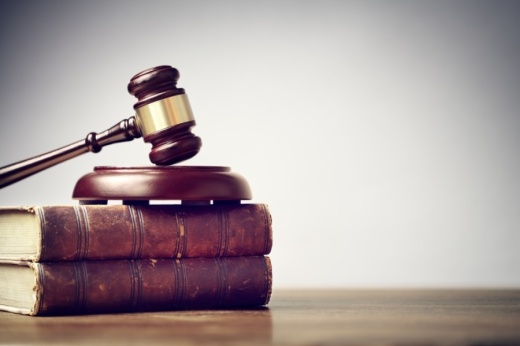Murray Fogler, an attorney representing the sheriff's office, provided a status update on efforts to safely release jail inmates at a Jan. 26 hearing with U.S. District Judge Lee Rosenthal, who is presiding over an ongoing lawsuit dealing with the county's felony bail practices. Those efforts are largely focused on vetting roughly 1,900 inmates for release and quickly scheduling reduced bail hearings for inmates that were agreed upon by the sheriff's office and district attorney.
When reduced bail hearings were first discussed in mid-January, the jail was on the brink of hitting its capacity with, more than 9,000 inmates and fewer than 70 open beds. Since then, Fogler said the jail population has gone down by several hundred. As of midnight Jan. 26, about 8,800 inmates were being held in the jail, he said.
Since Jan. 15, a list of 1,543 inmates was turned over to the Harris County District Attorney's Office to be considered for reduced bond. After the office vetted the list, objections were made for all but 60 of the listed inmates. Only seven of those 60 had been released as of Jan. 26, Fogler said.
"That should not be surprising because this is what was happening during the summer when we had these same types of pushes to try to encourage releases," Fogler said at the Jan. 26 hearing.
Fogler attributed the slow progress to stalls within courtrooms in getting hearings set.
“The courts are not responding," he said. "They are not having hearings, and they are not simply pushing the process through to get this accomplished.”
Rosenthal made it clear that she was aware of the urgency of the situation; she said those gathered were "adding to the public danger by our inability to move more quickly."
"Even as we speak, new infections are occurring and they are being exported out of the jail into our city and county and beyond," she said. "I know it is keeping many of us awake at night, and it should. It absolutely should."
The complex process of vetting inmates for release was exemplified by one example brought up by Mark Thiessen, president of the Harris County Criminal Lawyers Association. In working with the Harris County Public Defender's Office earlier in the day, Thiessen said they came across a case of a young human trafficking victim whose family wanted her to stay in custody for her own safety.
Some of the inmates being considered for release had previously been released on bond, failed to appear for their hearings and picked up new charges, said Matthew Diggs, an attorney representing four district court judges in the lawsuit.
Elizabeth Rossi, an attorney representing plaintiffs in the lawsuit, pushed for automatic individual bail hearings to be set for each inmate under consideration, which she said would allow judges to determine the appropriate conditions of release based on each circumstance.
However, Rosenthal said she wanted to deal with the 53 inmates on the non-objection list first. She also asked stakeholders to look into inmates with various holds, including immigration holds and out-of-county holds, to see if there were any opportunities for release.
Normally, inmates with immigration holds would be given a jury trial before eventually being released to the U.S. Department of Homeland Security. With jury trials on hold during the pandemic, Rosenthal said she was concerned the number of pretrial inmates with immigration holds would continue to build.
For inmates with out-of-county holds—inmates being held in the Harris County jail with an open charge in another county—Rossi said Harris County judges are still able to release inmates on personal recognizance bonds.
Inmates with parole holds can also slip through the cracks, Rossi said, because public defenders often do not put any effort into advocating for them on new charges. Rosenthal also directed lawyers to provide a list to the public defender's office of inmates with parole holds to ensure lawyers are appointed for any new charges they are facing.
County officials have made similar pushes—which have largely unsuccessful—to release inmates throughout the pandemic. Those representing the plaintiffs in the case expressed some disappointment that more was not being done.
Attorney Neal Manne said the court was having a policy discussion instead of putting out orders to act.
"We have periodic bursts of activity leading essentially to nothing," he said.
Rosenthal said she did not have the authority to force judges to set up automatic bail hearings. However, she said she remains dedicated to move the case forward swiftly and having prompt hearings to discuss issues as they arise. She urged parties to work together to identify inmates for release or reduced bonds and to get hearings set as needed.
"We won’t be doing enough, but we won’t be doing nothing," she said.
A follow-up hearing has been set for Feb. 5.





